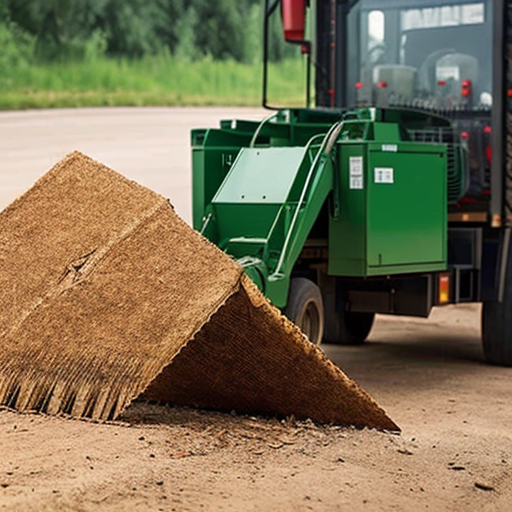Chipper knives are essential components in wood chippers, responsible for cutting and chipping wood into smaller pieces. To ensure optimal performance and maximize their lifespan, proper maintenance and care of chipper knives are crucial. In this article, we will delve into the importance of maintaining and caring for chipper knives, providing valuable insights on best practices and techniques to prolong their lifespan. By following these guidelines, operators and wood chipper owners can enhance the efficiency and longevity of their chipper knives.
Regular Inspection:
Regular inspection of chipper knives is essential to identify any signs of wear, damage, or misalignment. Inspect the blades for dullness, cracks, chips, or any other signs of wear and tear. Additionally, check for proper alignment and balance to ensure even cutting performance. Conducting routine inspections allows early detection of issues, preventing further damage and ensuring optimal cutting efficiency.
Sharpening and Resharpening:
Proper sharpening is vital for maintaining the cutting performance of chipper knives. Dull blades not only reduce chipping efficiency but also put additional strain on the chipper’s engine. Sharpen the blades regularly using appropriate sharpening tools and techniques. Follow the manufacturer’s guidelines for the correct angle and method of sharpening. Additionally, consider resharpening the blades when necessary to restore their sharpness and cutting effectiveness.
Blade Replacement:
Even with proper maintenance, chipper knives will eventually wear out and reach the end of their lifespan. It is important to monitor the condition of the blades and replace them when signs of significant wear are evident. Consult the chipper’s manufacturer or a qualified professional to determine the appropriate time for blade replacement. Using worn-out blades can result in reduced chipping efficiency, poor chip quality, and increased risk of accidents.
Cleaning and Lubrication:
Regular cleaning of chipper knives is essential to remove wood debris, sap, and other contaminants that can accumulate during operation. Use a wire brush or suitable cleaning tools to remove residue from the blades. After cleaning, apply a thin coat of lubricant or rust inhibitor to prevent corrosion and maintain the blades’ sharpness. Proper cleaning and lubrication not only ensure optimal performance but also extend the lifespan of chipper knives.
Safe Handling and Storage:
Proper handling and storage of chipper knives are crucial to prevent damage and maintain their sharpness. Always follow safety protocols when handling blades, wearing appropriate protective gear such as gloves and goggles. Ensure the blades are securely stored in a dry and clean environment to prevent moisture and rust formation. Use blade guards or sheaths when storing or transporting the knives to minimize the risk of accidental injuries.
Operator Training and Education:
Proper training and education of operators are vital for maintaining chipper knives effectively. Ensure operators are knowledgeable about the chipper’s operation, maintenance procedures, and safety protocols. Train them on the correct techniques for inspecting, sharpening, and replacing chipper knives. By empowering operators with the necessary knowledge and skills, the lifespan of chipper knives can be significantly extended.
Conclusion:
Proper maintenance and care of chipper knives are key to prolonging their lifespan and ensuring optimal performance. Regular inspection, sharpening, and replacement when necessary, along with cleaning, lubrication, and safe handling, contribute to the longevity and efficiency of chipper knives. Operator training and education further enhance the effectiveness of maintenance practices. By following these guidelines, chipper owners can maximize the value of their investment and enjoy extended use of their chipper knives.
